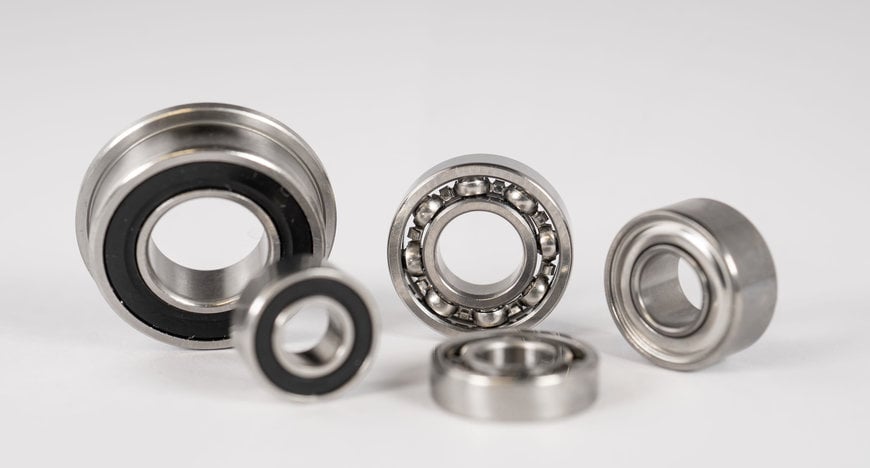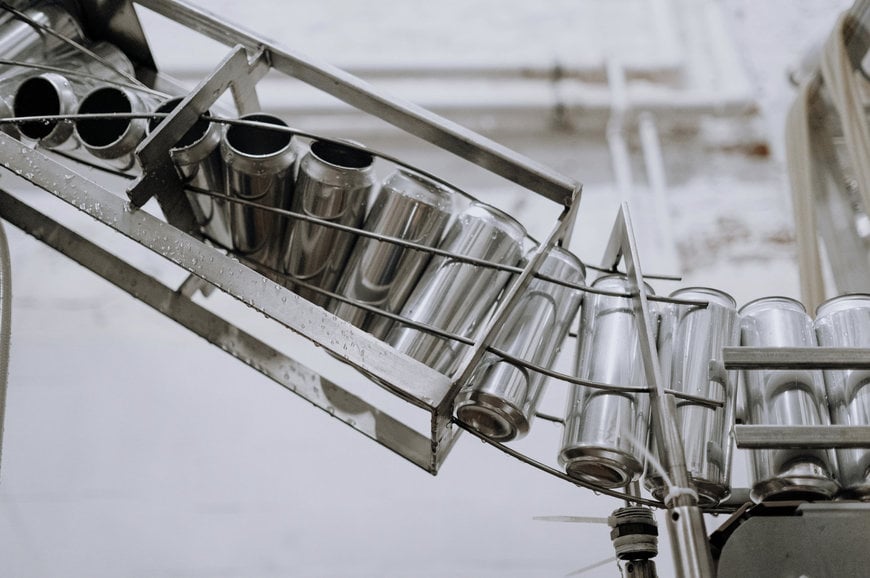The economic benefits of investing in high-quality bearings
Chris Johnson, managing director at specialist bearing supplier SMB Bearings, discusses the economic benefits of high-quality bearings, focusing on reduced downtime, minimized repair costs, and improved machinery reliability across industries.

The cost of unplanned downtime is staggering, with global estimates suggesting unplanned downtime costs manufacturers $50 billion annually. A critical yet often overlooked component in preventing such losses is the bearing — the small but vital part that keeps industrial operations running smoothly.
Industry challenges
Despite their small size, bearing failures can have massive financial implications. When a bearing fails, it can lead to unplanned downtime, costly repairs and in severe cases, the complete shutdown of production lines. In fact, studies show that up to 40 per cent of industrial machinery breakdowns are caused by bearing issues. This can result in substantial losses in revenue, especially for industries that operate on tight schedules and cannot afford delays.
Moreover, the direct costs of replacing a failed bearing are often just the tip of the iceberg. The indirect costs, such as lost production time, emergency repairs and expedited shipping for replacement parts, can quickly add up. For industries like automotive manufacturing, aerospace and heavy machinery, where precision and uptime are highly important, even a small disruption can have a ripple effect across the entire operation.
Another significant challenge is the lack of predictive maintenance. Many companies still rely on reactive maintenance strategies, meaning they only address bearing issues once a failure occurs. This approach not only leads to frequent breakdowns but also results in higher long-term maintenance costs. Additionally, in industries where bearings operate in harsh conditions — such as extreme temperatures, heavy loads, or corrosive environments — standard bearings may wear out more quickly, further increasing the likelihood of failure.
Overcoming industry barriers
To address these challenges, many industries are shifting towards more proactive maintenance strategies, particularly predictive maintenance. By utilising advanced monitoring technologies, companies can now track the performance of their bearings in real-time. Sensors can detect early signs of wear, lubrication issues, or misalignment, allowing maintenance teams to address potential problems before they lead to catastrophic failures.
For example, the automotive industry has seen significant advancements in the use of Internet of Things (IoT) technology to monitor bearing health. By integrating IoT sensors into their systems, manufacturers can collect data on bearing performance, temperature and vibration levels. This data is then analysed to predict when a bearing is likely to fail, enabling timely maintenance and reducing the risk of unplanned downtime.
In addition to predictive maintenance, industries are also turning to higher quality bearings that are designed to withstand the specific demands of their applications. Bearings made from advanced materials, such as ceramic or high-grade stainless steel, offer superior durability and performance in extreme conditions. These bearings can handle higher loads, resist corrosion and operate at higher temperatures, making them ideal for industries like aerospace, oil and gas and heavy machinery.

High-quality bearings for long-term savings
SMB Bearings has long recognised the importance of investing in high-quality bearings to ensure the longevity and efficiency of machinery. It’s range of bearings is designed to meet the rigorous demands of various industries, offering enhanced durability, precision and performance. While the initial cost of high-quality bearings may be higher, the long-term savings can far outweigh the upfront investment in certain applications.
For example, in industrial conveyor systems, frequent bearing failures can occur due to high loads, dust contamination and temperature fluctuations. These issues often lead to production delays and significant maintenance and replacement costs.
Investing in high-quality, precision-engineered bearings designed for heavy-duty applications can address these challenges effectively. Bearings with enhanced load capacities, advanced sealing to protect against contamination and improved thermal resistance can significantly improve the reliability of conveyor systems.
Another example comes from the renewable energy sector, where wind turbines are subjected to extreme loads and constant movement. Bearings in wind turbines are critical components that must operate flawlessly to ensure energy production.
With the upgraded bearings, there is a substantial reduction in unplanned downtime and maintenance needs. This results in a dramatic decrease in repair costs and fewer production stoppages. Additionally, the improved reliability contributes to smoother production processes and higher overall efficiency.
In addition to opting for high-quality bearings, it is equally important to select the bearing type that is most suited to an application's specific conditions. Different applications may require bearings that can withstand high temperatures, corrosive environments, or heavy loads. For example, bearings used in high-speed machinery will have different requirements than those operating in harsh marine environments. Your choice must always begin with a clear understanding of the application and the environment in which the bearing will be used.
The economic case for quality
While the initial cost of high-quality bearings may be higher than their standard counterparts, the economic benefits of investing in better bearings that are specifically matched to the application conditions are clear. By reducing the frequency of bearing failures, minimising downtime, and extending the lifespan of machinery, companies can achieve significant cost savings over time. Moreover, the shift towards predictive maintenance and the use of advanced monitoring technologies further enhances the value of investing in high-quality bearings.
In today’s competitive landscape, where efficiency and uptime are critical to success, companies cannot afford to cut corners when it comes to their equipment. Bearings may be small, but their impact on the overall performance and reliability of machinery is immense. By investing in high-quality bearings, companies can not only improve the performance of their equipment but also protect their bottom line.
www.smbbearings.com

